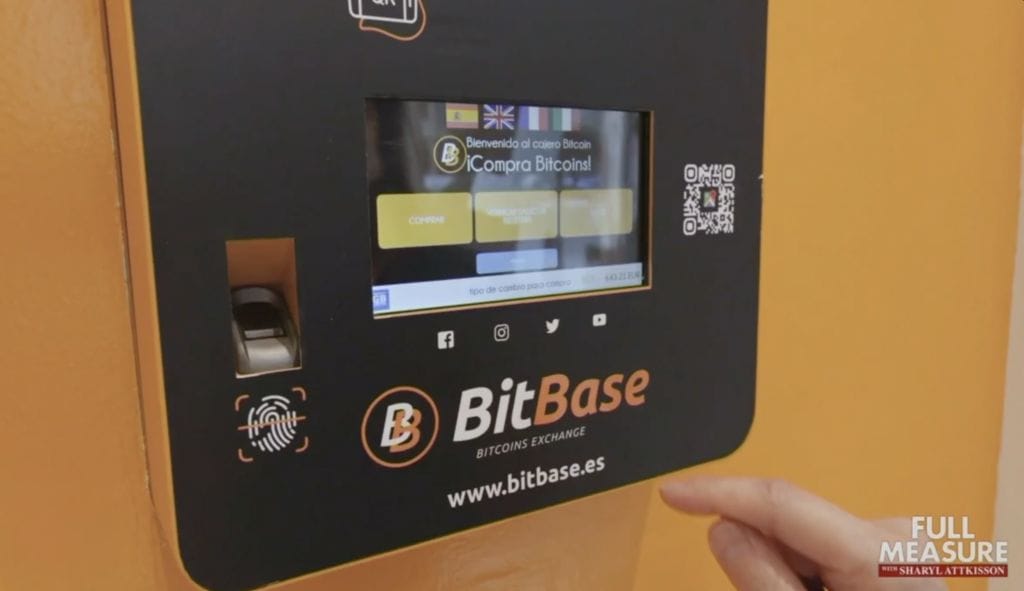It is said that a thousand years ago, when most money was held in coins, China invented paper currency. Today, the Communist nation is in the lead on a new Financial Technology or “FinTech” frontier: an official digital currency backed by the Chinese government. And that’s got the U.S. government scrambling to decide whether to do the same.
The following is a transcript of a report from “Full Measure with Sharyl Attkisson.” Watch the video by clicking the link at the end of the page.
China’s digital version of its currency is called Yuan also named e-CNY. The Communist government promotes it as “A step of cashless society!” The currency can be purchased tax-free with no middleman.
Analysts say it’s China’s effort to retain control and undercut the influence of other digital money and cryptocurrency like Bitcoin, which are backed by assets or nothing at all.
Darrell Duffie co-directed a project to at the Hoover Institution to analyze the implications.
Sharyl: Why do you think China is doing this, what it’s doing?
Darrell Duffie: The government wants to control anything where there’s a lot of data and where there’s a network of connections among Chinese citizens, and especially by a technology as powerful as a payments technology. And so we believe that the China Communist Party really didn’t want to cede that market space to the private FinTech firms that have pretty much taken it away from the big state-owned banks. So it was time for the government to step in and reassert government control over the payment market in China.
Sharyl: What did China do before this panel of experts was convened that got attention and made everybody say, “We need to figure out what’s behind it”?
Duffie: Well, first of all, China was way ahead of the U.S., even before it introduced its central bank digital currency. It had already moved from conventional bank-based payments, like you and I would use with our credit cards, to FinTech payments that are processed by firms like Alibaba and Tencent. And those apps had taken over 95% of day-to-day payments by consumers in China. That really got our attention. And then when the central bank said, “We’re not only ahead of the U.S. in that respect; we’re also going to be first out of major countries with an official central bank digital currency,” it occurred to us that (a) is the United States significantly behind here, and is that a critical issue for the U.S.? And (b) could things happen with China’s central bank digital currency that would threaten privacy, national security, the dominance of the dollar?
Sharyl: What are some of the conclusions you were able to come up with?
Duffie: Right now, the dollar is by far the dominant currency used in global payments. It covers about 40% of cross-border payments internationally, and China’s renminbi is only about 2.5%. So because of that demand for U.S. Treasury securities, based on the dominance of the dollar, the tax bill for U.S. citizens is lower because the U.S. government can fund its deficits at a lower interest rate, not to mention a big commercial advantage, and also helps U.S. taxpayers lower their tax bill because everybody wants to own the dollar. But, maybe with this new digital currency and other innovations that China is introducing, they can creep up on the dollar and erode the dominance of the dollar, which is a matter of great national security interest to the U.S.
Sharyl: What recommendations have you made for U.S. policy when it comes to countering whatever China’s trying to do?
Duffie: At first, we thought that our report might say, “Well, the U.S. needs to react by issuing its own central bank digital currency.” But after a year of investigation, what we discovered is, that decision is premature. First, the United States needs to investigate the technology, develop the technology to the point that it’s clear that it’s better than the next best alternative. There are big technology gaps right now. How do you protect privacy? How do you continue to monitor for money laundering? How do you make sure that people that are not in the banking system now, the unbanked, can use this central bank digital currency and access the banking system? All of these technology questions need to be answered before the United States finally decides to deploy a digital dollar. But in the meantime, it should get busy on developing it. That was one of our main conclusions.
Sharyl (on-camera): You can read more in the report issued by Duffie’s group at the Hoover Institution. It’s called, “Digital Currencies: The US, China, And The World At A Crossroads.”
Watch story here.




We should NEVER move to a central digital currency as it will forever remove our freedom. The government will control all. The Covid pandemic was all I needed to see what the government plans for us, and it’s not good. We need to audit the private Central bank before anything else. Ee should abolish the private Federal Reserve. We don’t need it. Then we can talk digital currency.
Biden already has plans to withdraw all cash from our economy (orders banks not to accept or exchange any cash) and make us use digital assets. It will deliver America to the NWO.
Executive Order 14067
But ALL of the banking system now, not just the fake crypto currencies, totally rely upon the electric utilities staying in business, and how can they do that, when the rate payers cannot afford their electricity bills and the power companies cannot afford to buy the fuels they burn to make electricity?? The hyperinflation of the fiat currencies of the world is going to kill the electric power industry! How can it not do so??